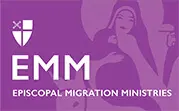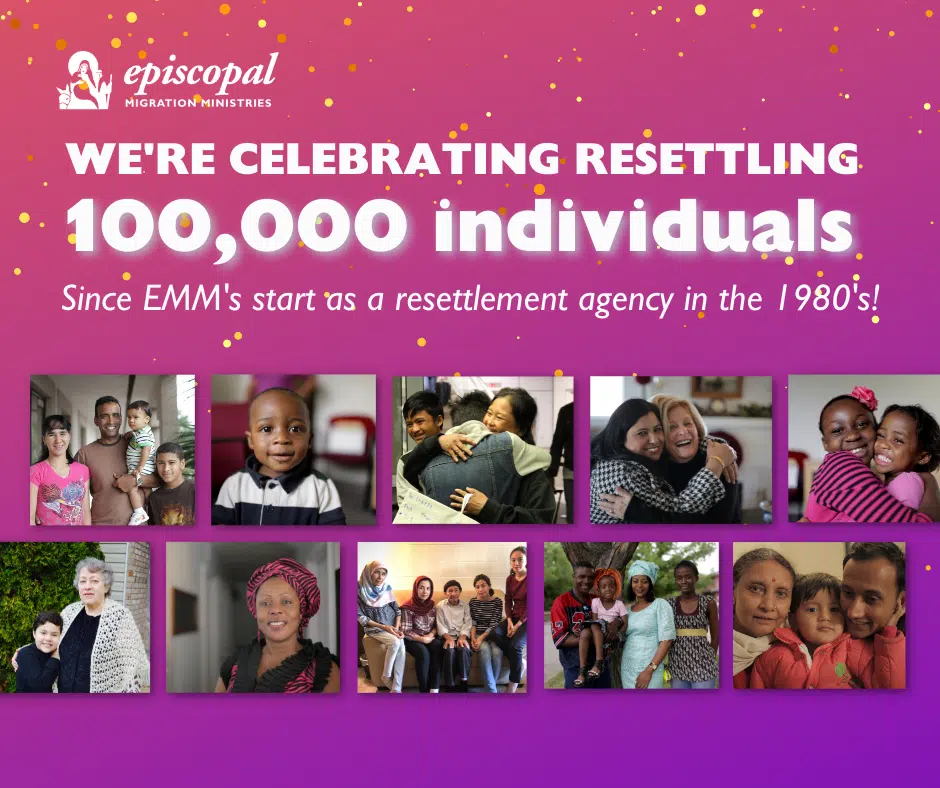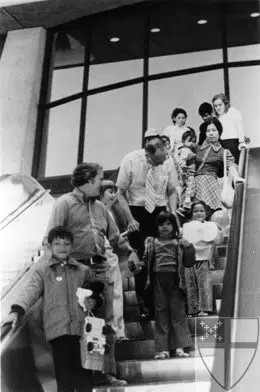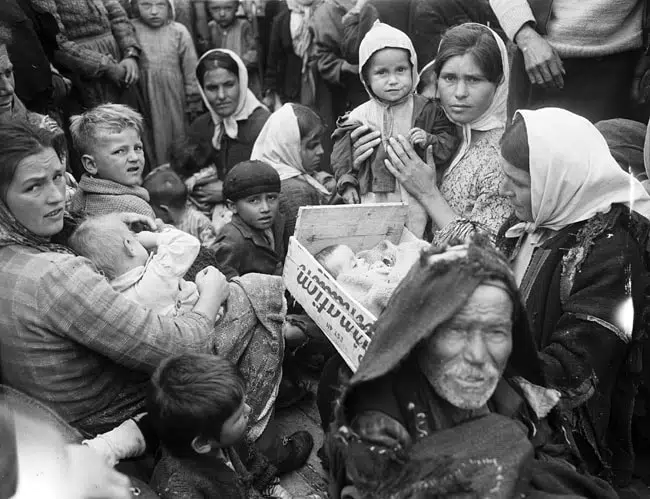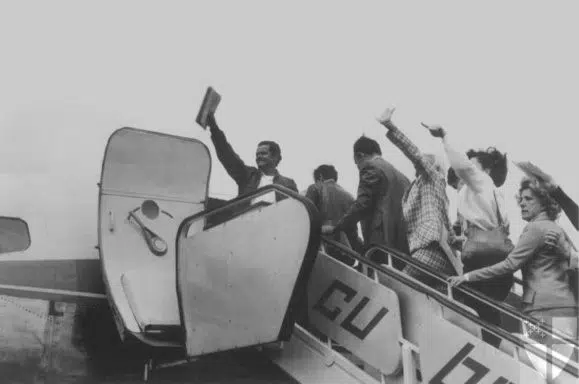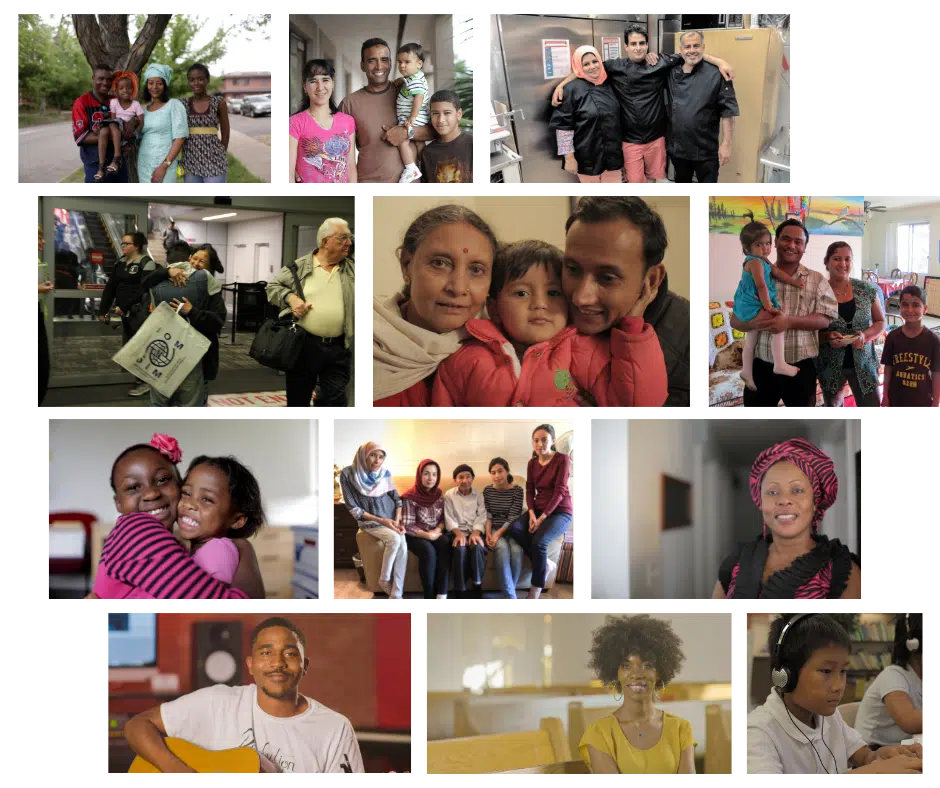This week, EMM celebrates resettling 100,000 individuals since our inception as a resettlement organization in the 1980s. We could not have done this without the support, generosity, dedication, and spiritual gifts of our partners and supporters. Our history as a resettlement agency, the challenges we have faced, and the victories we have celebrated all led us to be the ministry we are today.
The Origin of Episcopal Migration Ministries
The work carried on by Episcopal Migration Ministries is a continuation of The Episcopal Church’s proud tradition of providing aid and protection to displaced persons from around the world.
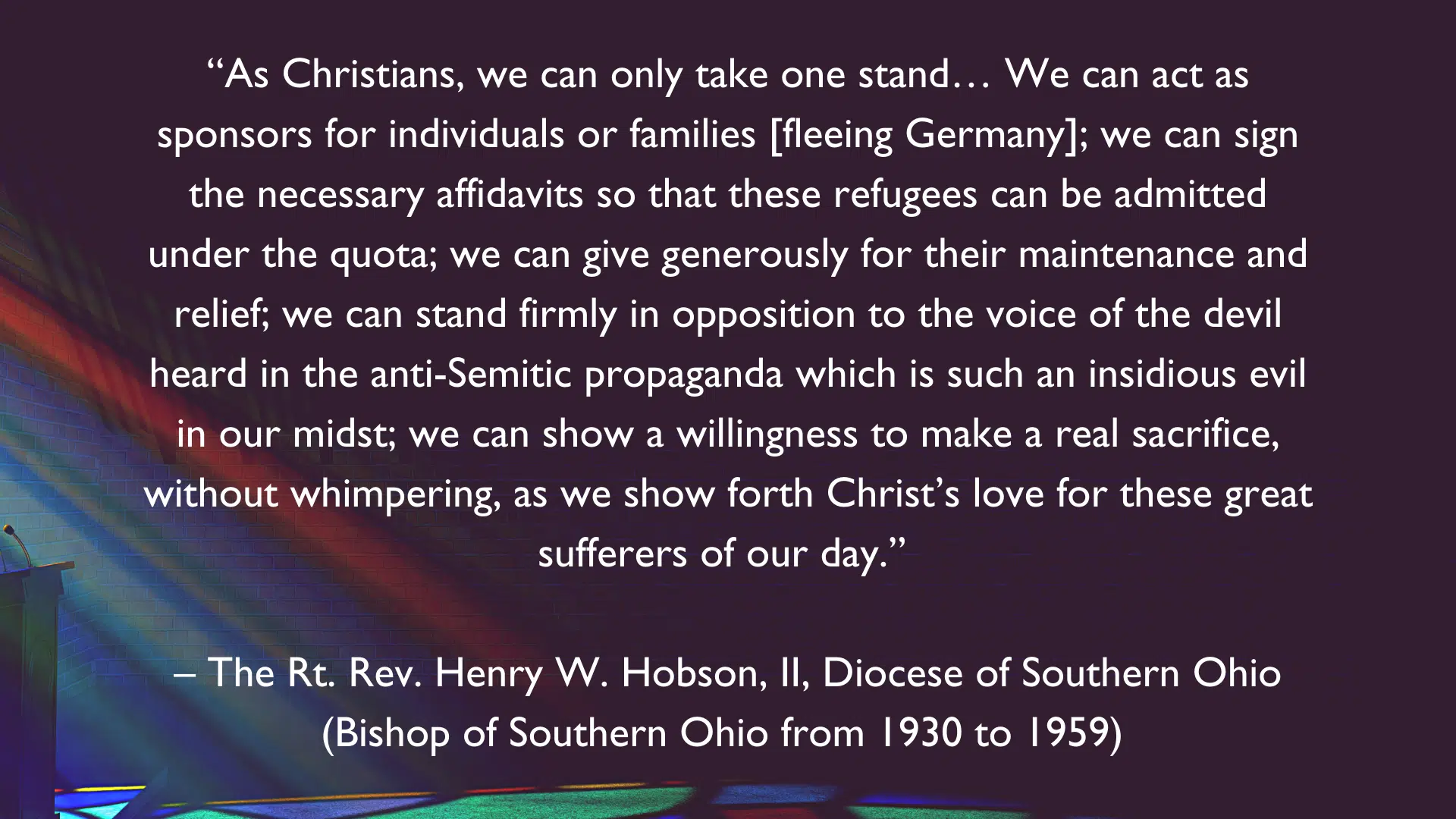
Following World War I, the newly created Bureau of Immigration of The Episcopal Church Board of Missions began its ministry to new arrivals to the United States.
With the onset of World War II and Nazi oppression against Jews and other minorities, the Diocese of Southern Ohio enlisted other parishes and dioceses in responding to the plight of refugees in Europe. The Presiding Bishop’s Fund for World Relief (now Episcopal Relief and Development) was an outgrowth of this initiative and became the Church’s response to the needs of war victims, refugees and other displaced persons.
In 1946 The Episcopal Church partnered with sixteen Protestant denominations in founding Church World Service as the overseas aid vehicle of the National Council of Churches of Christ.
During the 1970s, the Church served refugees displaced by the Vietnam conflict and the fall of Saigon who lived in makeshift cities on U.S. military bases. The Church resettled thousands of these refugees beginning in 1975.
Throughout the 1980s and 1990s, the Church continued to assist displaced people overseas, sending aid and advocating for refugees from Sudan, Rwanda, Cambodia, Vietnam, Bosnia, Kosovo, South Africa, Iraq, Haiti, Cuba, Liberia, and many other countries.
The Presiding Bishop’s Fund continued to resettle refugees as a unit of Church World Service through 1981, when the Fund began administering its own refugee aid programs. In 1988, a new entity, Episcopal Migration Ministries, was established and charged with carrying out the Church’s resettlement work.
EMM now stands as a separate program operating within the Mission Department of the Church. Make a donation to support this historic and vital ministry The Episcopal Church here.
